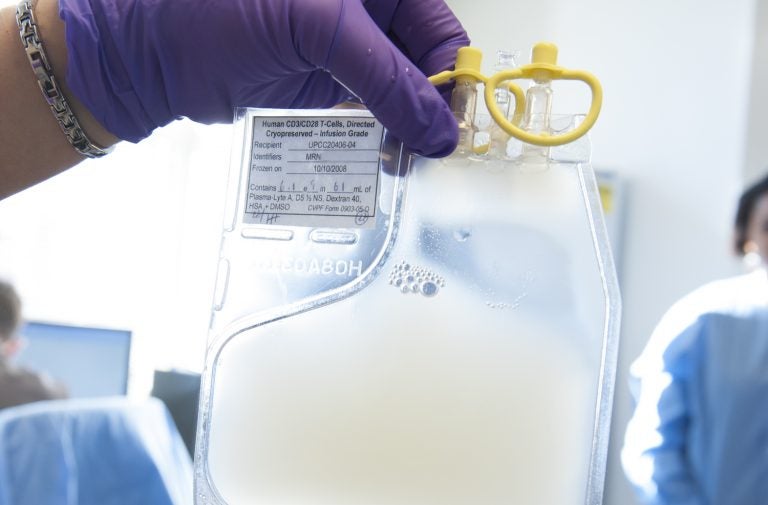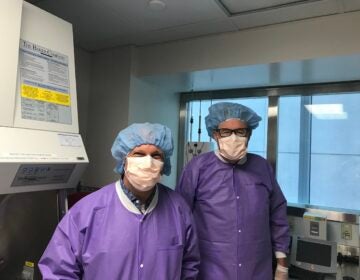FDA approves gene therapy to treat cancer in white blood cells
Some say this is a turning point in using these treatments for cancer, and expect more developments in the future.

Genetically modified white blood cells ready to be transferred back to a cancer patient. (Provided by Penn Medicine.)
The Food and Drug Administration approved gene therapy to treat adults with a type of cancer in their white blood cells, and some experts say this could be a turning point in how cancer is treated.
The treatment is for a type of lymphoma, in which some of the patient’s own white blood cells become abnormal and keep dividing. The new treatment would take other white blood cells from the patient, genetically engineer them to kill the cancer-causing cells, and put them back into the patient’s body.
David Chang, chief medical officer of Kite, the drug company making the new treatment, says “this is very different than anything else that has been there before; reprogramming patients’ own immune cells to fight cancer.”
This new treatment comes after the FDA approved a similar gene therapy in August to treat cancer in blood and bone marrow for patients younger than 25.
Carl June is a professor of immunology at the University of Pennsylvania and helped work on that treatment. He says the newly-approved drug could lead to more gene therapy treatments.
“I think this is just the beginning of many, many different forms of cancer therapy using genetically engineered cells,” he said.
He says there are many promising gene therapies being studied. For instance, researchers at the Children’s Hospital of Philadelphia are studying a gene therapy for Hemophilia B, an inherited disorder where the blood cannot clot to stop bleeding.
Whether patients can get the new treatment depends on their doctors, and they’ll need to have had two treatments that didn’t work before they try the new one.
The gene therapies do have side effects. About half of the patients using the new treatment achieved complete remission in a large trial of 101 patients, but two died from side effects. That’s why the new treatment will only be available at treatment centers where doctors have been trained to look out for these complications.
The other issue is cost: the newly-approved treatment costs $373,000.
Carl June says gene therapy is priced so expensive because you have to develop a treatment for each individual patient using their own cells, but he expects the cost to go down eventually. And he says you just need the gene therapy once, rather than having patients go through long and sometimes even more expensive therapies, a problem known as financial toxicity.
WHYY is your source for fact-based, in-depth journalism and information. As a nonprofit organization, we rely on financial support from readers like you. Please give today.





